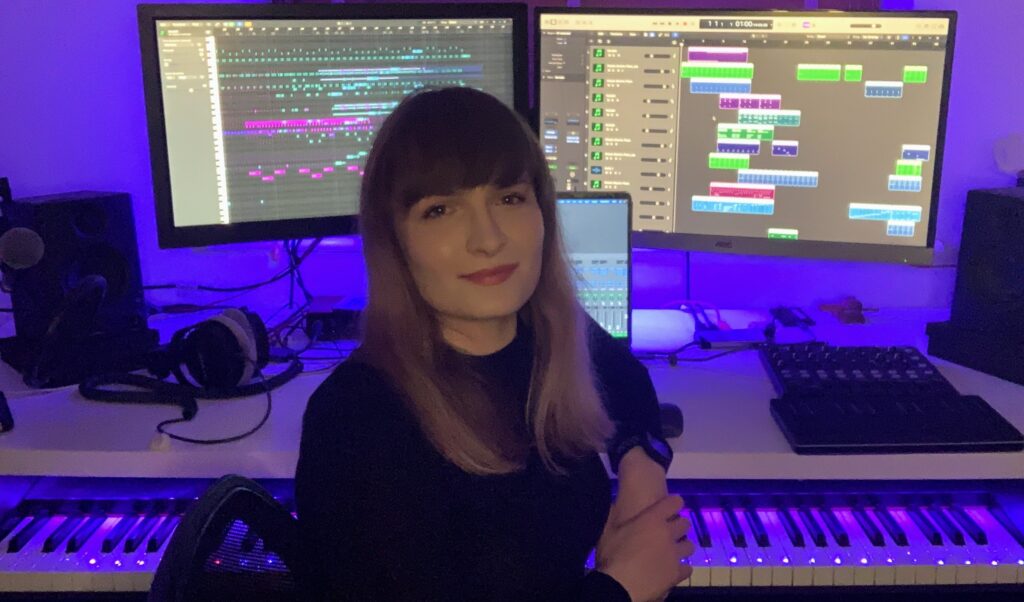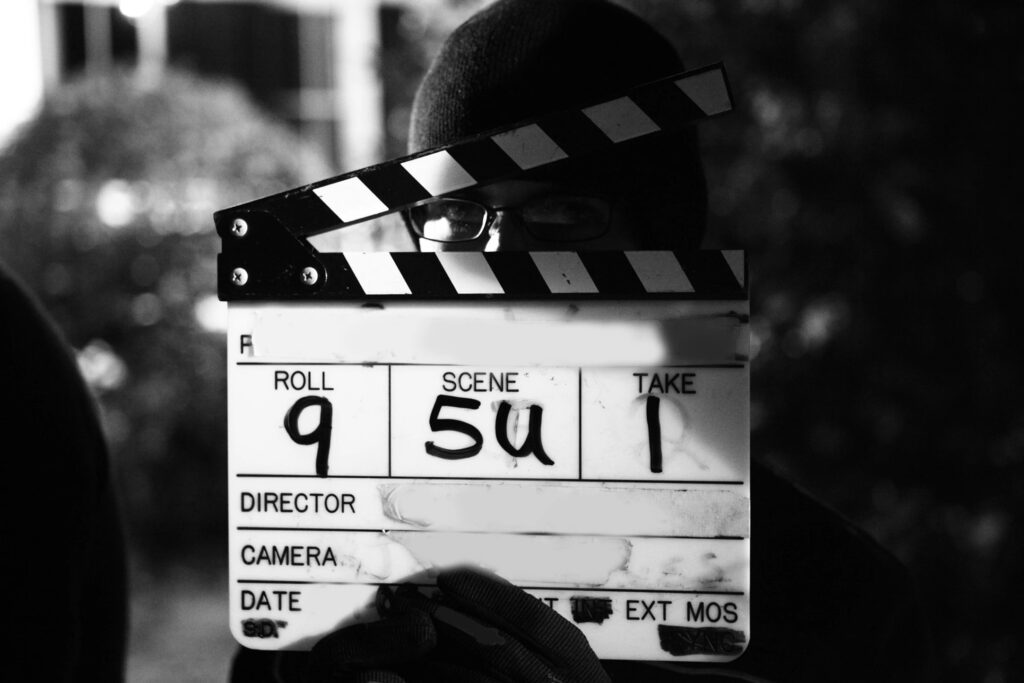Introduction
Navigating the intricate world of film scoring can be a daunting journey for many aspiring composers. That’s why we sat down with Lauren Finch, a seasoned film composer with a wealth of experience, to demystify the process. Lauren covered an array of topics ranging from the early steps one should take, to networking, and even the intricacies of financial negotiations. Let’s delve into the comprehensive advice she has to offer.
Below are the highlights of our interview with Lauren. To learn more about the resources she used and hear the full interview please access the HyperTribe network here.

Lauren Finch biography: Lauren is an accomplished composer based in the UK, holding an MA in Professional Media Composition. Specializing in a diverse range of media—from evocative short films like “2042” to full-length feature productions such as “The Underdog”—her artistic scope also extends to theatre, with notable credits including “Faustus” and “Ophelia.” Utilizing a state-of-the-art home studio armed with premium sample libraries, Lauren has the capability to deliver world-class compositions. Not limited by geography, she offers her specialized services globally and boasts an extensive network of professional musicians to elevate any project. In addition to her compositional prowess, Lauren also has expertise in sound design, adding an extra layer of depth to her already impressive portfolio.
The Importance of Experience and Starting Small
The cornerstone of Lauren’s advice centers on gaining real-world experience. According to her, no amount of academic learning can substitute for hands-on experience. “Starting small is a good thing,” she says. Don’t shy away from student films or indie projects; these small projects can serve as building blocks for your portfolio, propelling you to larger, more challenging opportunities.
Start Networking in the Film Industry for Composing
Another vital aspect of making it in the film industry is networking, something Lauren stresses as more accessible than one might assume. She points out that there are numerous film festivals and events, often free to attend, where one can meet important contacts. Specifically, she mentions Rain Dance’s monthly networking events, which she has found to be beneficial.
A Composer’s Toolbox: Continual Practice
When asked what tools or resources budding composers should be aware of, Lauren unequivocally recommends continual practice. Platforms like HyperTribe that offer composers tools to hone their skills and build their portfolios. Even if you’re already working on small projects, these additional resources can be invaluable for growth and development.
The Financial Side of Film Scoring
The question of finances is inevitable, and according to Lauren, it’s a complex topic. She advocates for a detailed understanding of each project’s budget, advising that this can serve as a baseline for your charges. Lauren and Kimberly Dickson, the interviewer, both caution against consistently undercutting your own value just to land a project.

Director’s Vision: Aligning Your Music
Perhaps one of the most nuanced aspects of film scoring is aligning your work with the director’s vision. Lauren advises, “Get in the director’s head.” Understanding what a director is looking for in a score is pivotal, and it’s something you can only glean through detailed conversations and a bit of intuition.
One Piece of Golden Advice
For those starting out, or even those already on their way, Lauren has a golden nugget of advice: “Practice.” Your skillset is your calling card in this competitive industry, and there’s no substitute for talent. She encourages aspiring composers to reach out for a list of helpful resources.
Conclusion: Your Journey in Film Scoring
According to Lauren, while challenging, breaking into film scoring is far from an impossible dream. With the right skillset, an effective networking strategy, and a deep understanding of project budgets, aspiring composers can make their mark in this competitive field.
To sum it up, as Lauren puts it: “If at any point you feel undervalued, don’t settle. Feel happy with what you’ve decided.” When starting to compose in film we understand it can be confusing so hopefully this article helps with giving a better direction.
Want More?
If you found this blog enlightening and want to watch the full interview with Lauren Finch and connect with her? We have great news! You can access the entire video by joining Hypertribe on a free 15-day trial. Get the in-depth insights that only a full interview can provide and start your journey in film scoring on the right note. Start Your Free 15-Day Trial with Hypertribe Today!



